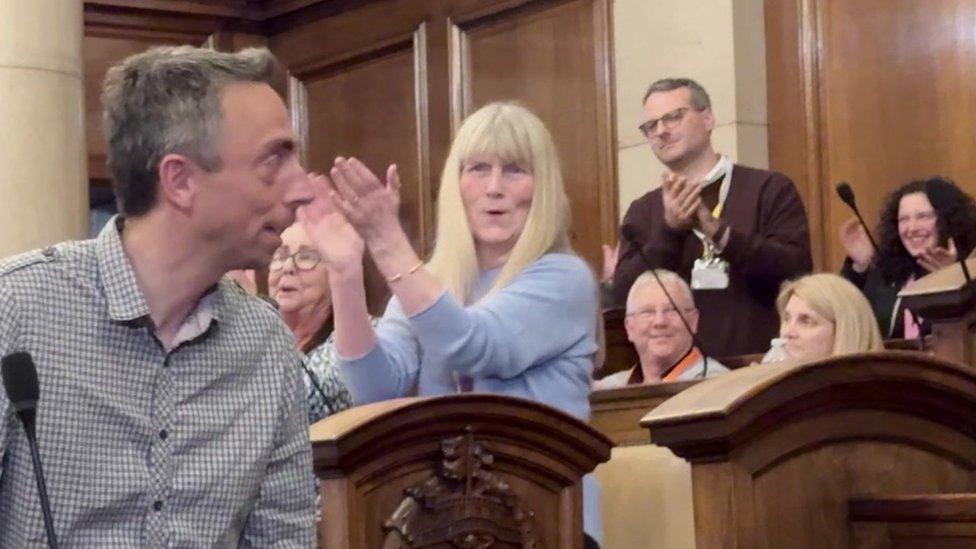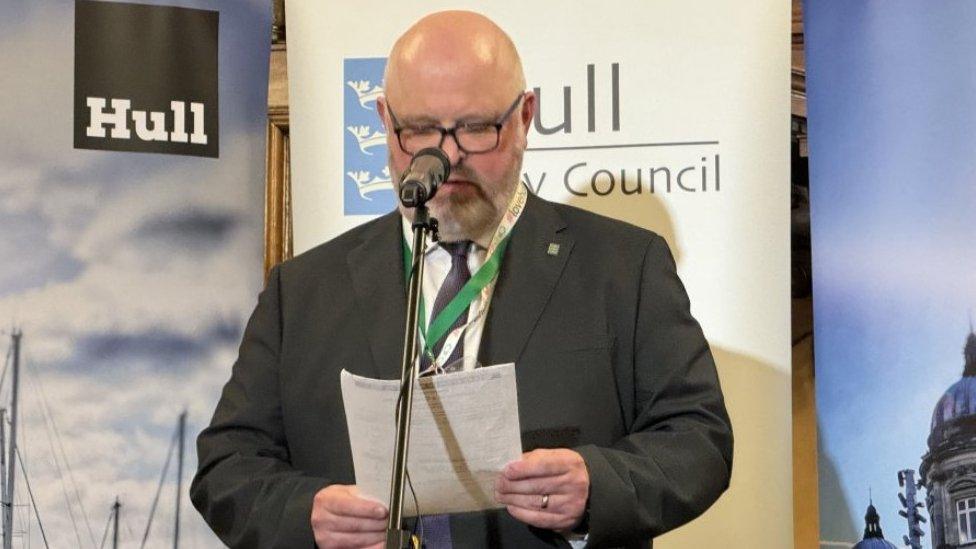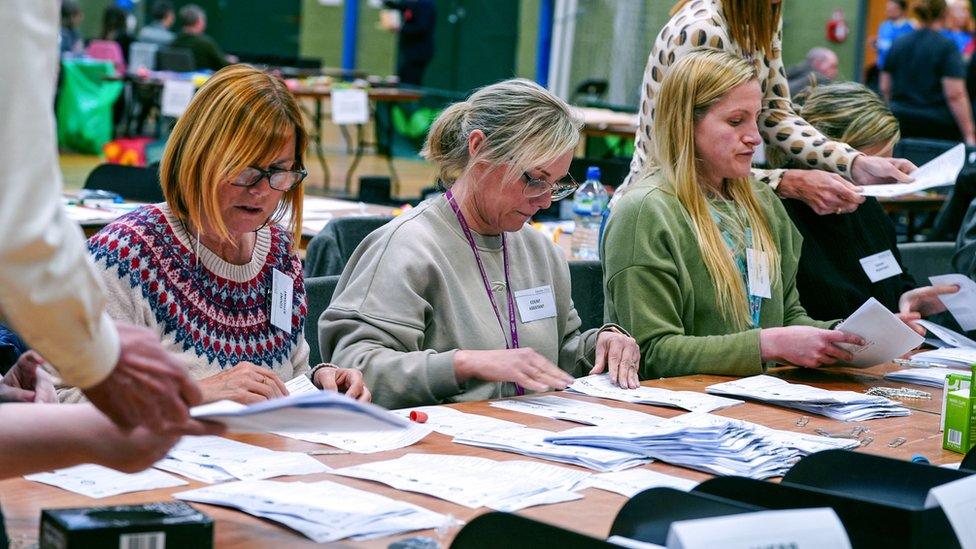North of England declares election results: Lib Dems retain control of Hull City Council
- Published
- comments

Council leader Mike Ross, pictured left, said it was a "strong result" for the Liberal Democrats
The Liberal Democrats remain in control of Hull City Council - despite Labour taking three seats from them in Thursday's election.
The result leaves the Liberal Democrats with a total of 31 council seats to Labour's 26.
Council leader Mike Ross said it was a "strong result", showing people had faith in the Lib Dems.
Labour group leader Daren Hale said his party was heading towards retaking control of the Guildhall.
No other parties won any seats in an election that saw a turnout of just 21.43%.

Hull City Council's chief executive and returning officer Matt Jukes announces the results
Notable results include Labour gains in the Avenue, Derringham and North Carr wards while the Liberal Democrats took University.
A third of the council's 57 seats across 19 wards were up for grabs this year.
Mr Ross said: "Tonight has seen a strong result for the Liberal Democrats in Hull.
"Residents have put their faith in us for the third year in a row. In return, our promise is to carry on listening to them and carry on getting real change for the city.
"Whether it is changes to bus lanes or cleaning up the city, this Lib Dem council is committed to being one that works for you. Our focus will be getting the basics right, working hard all year round and making sure our communities get the service they deserve."
Thanking those who voted for his party, Mr Ross added: "We will now make good on our promise to make Hull a cleaner, greener and safer place."
Mr Hale told the Local Democracy Reporting Service that Labour had put the Liberal Democrats on notice and his party was heading towards retaking control of the Guildhall after losing it in 2022.

Analysis: BBC political reporter Sarah Sanderson
The council election in Hull was once again a battle between Labour and the Liberal Democrats.
But it was the Lib Dems who were celebrating after keeping control of Hull City Council despite losing three seats to Labour.
According to the Electoral Commission, Hull had the lowest turnout in the local elections last year among unitary authorities with just 22% of the electorate voting. This year that figure was even lower at 21.43%.
Those who did choose to vote will now be looking to the Lib Dems to deal with local issues and many more responsibilities which fall to our local authorities.
Meanwhile, Labour will sit once again as the opposition group. This year's local elections may be over in Hull but the political fight between these two parties is set to continue.

Follow BBC East Yorkshire on Facebook, external, X (formerly Twitter), external, and Instagram, external. Send your story ideas to eastyorkslincs.news@bbc.co.uk, external
Related topics
- Published2 May 2024

- Published3 May 2024
